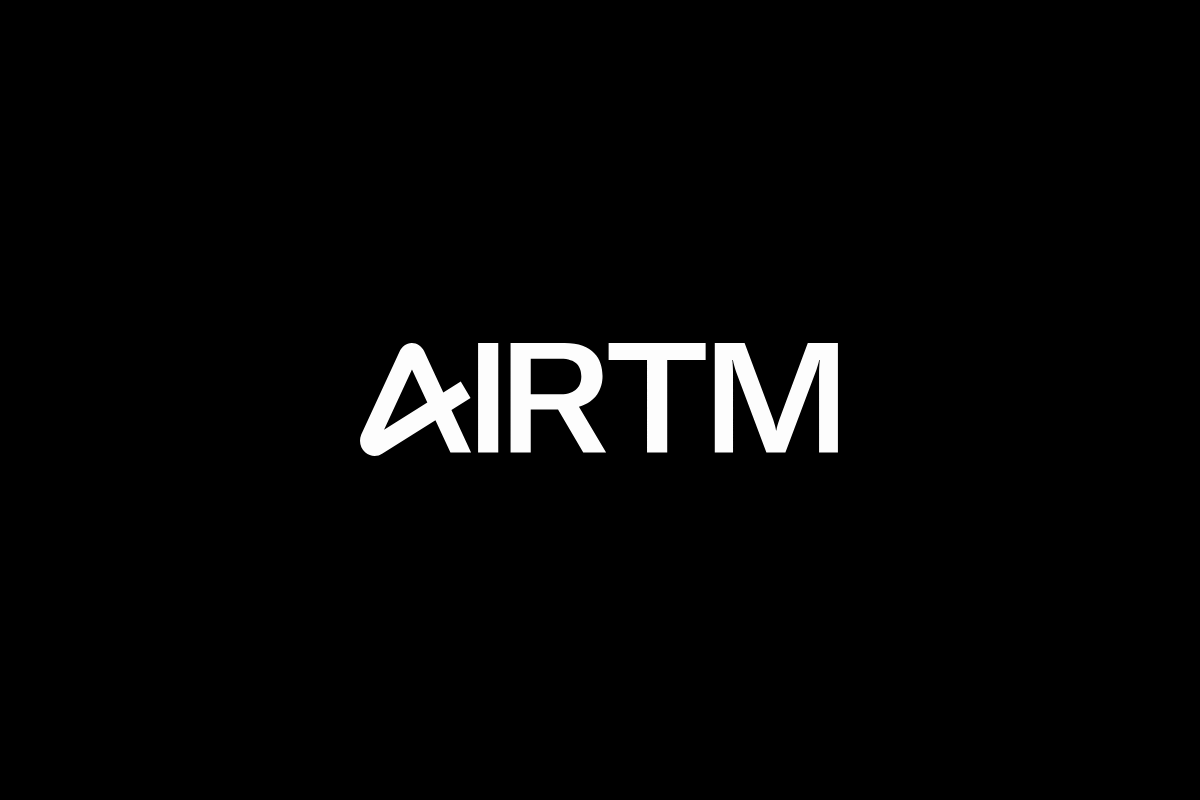Fintech
NetCents Declares Readiness for Expected US Federal Reserve “Digital Dollar”

New Currency Anticipated to be Part of Future COVID-19 Stimulus Package
Vancouver, British Columbia–(Newsfile Corp. – April 6, 2020) – NetCents Technology Inc. (CSE: NC) (FSE: 26N) (OTCQB: NTTCF) (“NetCents” or the “Company“), a disruptive cryptocurrency payments technologies company, is pleased to announce that it has completed internally designated preparation for the expected US Government backed cryptocurrency, “Central Bank Digital Currency” (CBDC).
NetCents jumped into action as soon as it learned of the plans US Congress made to legislate for this US Federal Reserve Digital Currency as part of two different versions of the first COVID-19 Stimulus Bill (“Stimulus Bill” or the “Bill”). Ultimately this aspect of the legislation wasn’t included in the final version of the first Stimulus Bill, but the Board and Advisors of NetCents have agreed that this “Digital Dollar” will be included in subsequent legislation.
The Bill is expected to establish a “Digital Dollar”, defined as ‘a balance expressed as a dollar value consisting of digital ledger entries that are recorded as liabilities in the accounts of any Federal Reserve Bank or … an electronic unit of value, redeemable by an eligible financial institution.’ This will create a cryptocurrency backed and guaranteed by the US Federal Government. The Bill goes on to define a digital wallet, and a requirement that US chartered banks offer these wallets.
The establishment of these products is intended to simplify the cost and process of distributing the millions of stimulus payments contemplated by the Bill, but the effects of this move will be far reaching. While the complexity of this undertaking meant that Congress was unable to include it in the first Bill – NetCents Management believes the ultimate adoption is a foregone conclusion.
Daniel Gorfine, founder of fintech advisory firm Gattaca Horizons and former Chief Innovation Officer at Commodity Futures Trading Commission (“CFTC”), as well as a founding Director of the Digital Dollar Project, stated to Forbes, ‘It is worth exploring, testing, and piloting a true USD CBDC and broader digital infrastructure in order to improve our future capabilities and resiliency. While the crisis underscores the importance of upgrading our financial infrastructure, broadly implementing a CBDC will require time and thoughtful coordination between the government and private sector stakeholders.’ – Forbes, March 24, 2020 (link below)
NetCents has developed software to support these initiatives and stands ready to support the effort. Part of the Bill requires US chartered banks to offer these digital wallets to their clients – NetCents has built this platform as part of its current white-label offering for financial institutions.
The Forbes article goes on to quote Carmelle Cadet, Founder and CEO of EMTECH, a modern central bank technology and services company. She has recently started a new initiative called, ‘Project New Dawn’ to ensure the unbanked and underbanked receive economic stimulus payments. Citing a FDIC report in 2017 that identified 63 million unbanked and underbanked in the U.S., she notes, ‘If checks are the form of payment, the stimulus is not going to reach many of them. That would be approximately $100B underutilized of stimulus for lower income householders.’
“We fully support the US Government in its’ creation of the contemplated Digital Reserve Currency. The US dollar is already the reserve currency of the World – so moving it to a digital format makes total sense. The US might have 63 million unbanked, but the planet Earth has billions of unbanked – it only makes sense that the dollar take a digital form to enable remittance and micropayments for the unbanked globally – as well as ensure its status as the World’s dominant currency. The benefits to the Treasury would accrue into many billions of dollars in innumerable ways. Societal benefits would be created as well; a Digital Dollar would be difficult to use for crimes and funding terrorism for example. This milestone is the ultimate endorsement that Cryptocurrency and Blockchain are here to stay,” stated Clayton Moore, Chief Executive Officer, NetCents. “We look forward to offering our platform to US Banks and then to Global Banks so that they can meet the requirements for a digital USD wallet,” he summarized.
NetCents Technologies enables transactions that are both touchless and within social distancing guidelines – which is an added benefit in the current environment.
The NetCents Suite of software enables individuals and merchants to transact using Cryptocurrency both in a physical store environment as well as in an e-commerce setting – it is deploying Crypto-enabled financial products across numerous business verticals to become a complete Crypto ecosystem.
Welcome to the future!
About NetCents
NetCents Technology Inc, the transactional hub for all cryptocurrency payments, equips forward-thinking businesses with the technology to seamlessly integrate cryptocurrency processing into their payment model without taking on the risk or volatility of the crypto market. NetCents Technology is registered as a Money Services Business (MSB) with FINTRAC.
For more information, please visit the corporate website at www.net-cents.com or contact Sonja Bakgaard, Investor Relations: [email protected].
To keep up to date with the Company and talk directly with the Team and other Shareholders, make sure to join the Telegram. https://t.me/Netcents
On Behalf of the Board of Directors
NetCents Technology Inc.
“Clayton Moore”
Clayton Moore, CEO, Founder and Director
NetCents Technology Inc.
1000 – 1021 West Hastings Street
Vancouver, BC, V6E 0C3
Cautionary Note Regarding Forward-Looking Information
This release includes certain statements that may be deemed “forward-looking statements”. All statements in this release, other than statements of historical facts, that address events or developments that the Company expects to occur, are forward-looking statements. Forward-looking statements are statements that are not historical facts and are generally, but not always, identified by the words “expects”, “plans”, “anticipates”, “believes”, “intends”, “estimates”, “projects”, “potential” and similar expressions, or that events or conditions “will”, “would”, “may”, “could” or “should” occur. Although the Company believes the expectations expressed in such forward-looking statements are based on reasonable assumptions, such statements are not guarantees of future performance, and actual results may differ materially from those in the forward-looking statements. Factors that could cause the actual results to differ materially from those in forward-looking statements include regulatory actions, market prices, and continued availability of capital and financing, and general economic, market or business conditions. Investors are cautioned that any such statements are not guarantees of future performance and actual results or developments may differ materially from those projected in the forward-looking statements. Forward-looking statements are based on the beliefs, estimates, and opinions of the Company’s management on the date the statements are made. Except as required by applicable securities laws, the Company undertakes no obligation to update these forward-looking statements in the event that management’s beliefs, estimates or opinions, or other factors, should change.
Fintech
Fintech Pulse: Your Daily Industry Brief (Chime, ZBD, MiCA)

As we close out 2024, the fintech industry continues to deliver headlines that underscore its dynamism and innovation. From IPO aspirations to groundbreaking regulatory milestones, today’s updates highlight the transformative power of fintech partnerships, regulatory evolution, and disruptive technologies. Here’s what you need to know.
Chime’s Quiet Step Toward Public Markets
Chime, the U.S.-based financial technology startup best known for its digital banking services, has taken a significant step by filing confidential paperwork for an initial public offering (IPO). As one of the most valuable private fintechs in the U.S., Chime’s move could potentially signal a renewed appetite for fintech IPOs in a market that has been cautious following fluctuating valuations across the tech sector.
With a valuation that reportedly exceeded $25 billion in its last funding round, Chime’s IPO could set a new benchmark for the industry. Observers note that its strong customer base and revenue growth may make it an appealing choice for investors seeking to capitalize on the digital banking boom. However, the timing and success of the IPO will depend on broader market conditions and the regulatory landscape.
Source: Bloomberg
ZBD’s Pioneering Achievement: EU MiCA License Approval
ZBD, a fintech company specializing in Bitcoin Lightning network solutions, has made history by becoming the first to secure an EU MiCA (Markets in Crypto-Assets Regulation) license. This landmark approval by the Dutch regulator positions ZBD at the forefront of compliant crypto-fintech operations in Europe.
MiCA, which aims to harmonize the regulatory framework for crypto-assets across the EU, has been a focal point for industry players aiming to establish legitimacy and expand their offerings. ZBD’s achievement not only validates its operational rigor but also sets a precedent for other fintech firms navigating the evolving regulatory landscape.
Industry insiders view this as a strategic advantage for ZBD as it broadens its footprint in Europe. By leveraging its regulatory approval, the company can accelerate its product deployment and establish trust with institutional and retail users alike.
Source: Coindesk, PR Newswire
The Fintech-Credit Union Synergy: A Blueprint for Innovation
The convergence of fintechs and credit unions continues to reshape the financial services ecosystem. Collaborative initiatives, such as the one highlighted in the recent partnership between fintech innovators and credit unions, are proving to be a potent force in delivering tailored financial solutions.
This “dream team” approach allows credit unions to leverage fintech’s technological expertise while maintaining their community-focused ethos. Key areas of collaboration include digital payments, personalized financial management tools, and enhanced loan processing capabilities. These partnerships not only enhance member engagement but also enable credit unions to remain competitive in an increasingly digital-first financial environment.
Industry analysts emphasize that such collaborations underscore a broader trend of traditional financial institutions embracing fintech-driven solutions to bridge service gaps and foster innovation.
Source: PYMNTS
Tackling Student Loan Debt: A Fintech’s Mission
Student loan debt remains a pressing issue for millions of Americans, and a Rochester-based fintech aims to offer relief through its cloud-based platform. This innovative solution is designed to simplify loan management and provide borrowers with actionable insights to reduce their debt burden.
The platform’s features include repayment optimization tools, personalized financial education, and seamless integration with loan servicers. By addressing the complexities of student loan management, this fintech is empowering borrowers to make informed decisions and achieve financial stability.
As the student loan crisis continues to evolve, solutions like this highlight the critical role fintech can play in addressing systemic financial challenges while fostering financial literacy and inclusion.
Source: RBJ
Industry Implications and Takeaways
Today’s updates underscore several key themes shaping the fintech landscape:
- Regulatory Milestones: ZBD’s MiCA license approval exemplifies the importance of regulatory compliance in unlocking growth opportunities.
- Strategic Partnerships: The collaboration between fintechs and credit unions demonstrates the value of combining technological innovation with traditional financial models to drive customer-centric solutions.
- Market Opportunities: Chime’s IPO move reflects a potential revival in fintech public offerings, signaling confidence in the sector’s long-term prospects.
- Social Impact: Fintech’s ability to tackle systemic issues, such as student loan debt, showcases its role as a force for positive change.
The post Fintech Pulse: Your Daily Industry Brief (Chime, ZBD, MiCA) appeared first on News, Events, Advertising Options.
Fintech
SPAYZ.io prepares for iFX EXPO Dubai 2025

Leading global payments platform SPAYZ.io has confirmed it will be attending iFX EXPO Dubai 2025 on 14 to 16 January. Exhibiting at Stand 64 at Trade Centre Dubai, SPAYZ.io’s team of professionals will be on hand providing live demonstrations of its renowned payment services for payment providers. Attendees will also receive exclusive insight into SPAYZ.io’s plans for 2025 alongside early early access to its upcoming plans for the new year.
SPAYZ.io delivers a host of payment solutions that leverage the latest technological innovations and open access to the fastest growing emerging markets across Africa, Europe and Asia. Over the past year, there has been huge demand for its Open Banking and local payment method services, alongside bank transfers, mass payouts, online banking and e-wallets.
Yana Thakurta, Head of Business Development at SPAYZ.io commented: “We look forward to once again participating at iFX Dubai to expand our network of partners and clients. It’s a fantastic way to kick off the year, connecting with thousands of industry leaders from FOREX platforms to trading companies, and everything in between.
“Our key goal for iFX Dubai EXPO 2025 is to expand our portfolio of solutions and geographies. We’re using this as an opportunity to partner with like-minded entities who share our ambition to provide payment solutions that are truly global.”
Come meet SPAYZ.io’s team at the Trade Centre Dubai at Stand 64. You can also book a meeting slot with a member of a team.
The post SPAYZ.io prepares for iFX EXPO Dubai 2025 appeared first on News, Events, Advertising Options.
Fintech
Airtm Enhances Its Board of Directors with Two Strategic Appointments

Airtm, the most connected digital dollar account in the world, is proud to announce the addition of two distinguished industry leaders to its Board of Directors: Rafael de la Vega, Global SVP of Partnerships at Auctane, and Shivani Siroya, CEO & Founder of Tala. These appointments reflect Airtm’s commitment to innovation and financial inclusion as the company enters its next phase of growth.
“We are thrilled to welcome Rafael and Shivani to Airtm’s Board of Directors,” said Ruben Galindo Steckel, Co-founder and CEO of Airtm. “Their unique perspectives and proven track records will be invaluable as we continue scaling our platform to empower individuals and businesses in emerging markets. Together, we’ll push the boundaries of financial inclusion and innovation to create a more connected and equitable global economy. Rafael and Shivani bring a wealth of experience and strategic insight that will strengthen Airtm’s mission to connect emerging economies with the global market.”
Rafael de la Vega, a seasoned leader in fintech global partnerships and technology innovation, is currently the Global SVP of Partnerships at Auctane. With a proven track record of delivering scalable, impactful solutions at the intersection of fintech, innovation, and commerce, Rafael’s expertise will be pivotal as Airtm continues to grow. “Airtm has built a platform that breaks down barriers and opens up opportunities for people in emerging economies to connect to global markets. I am excited to contribute to its growth and help further its mission of fostering financial inclusion on a global scale,” said Rafael.
Shivani Siroya, CEO and Founder of Tala, is a pioneer in financial technology, renowned for empowering underserved communities through access to credit and essential financial tools. Her leadership in leveraging data-driven innovation aligns seamlessly with Airtm’s vision of creating more equitable financial opportunities. “Empowering underserved communities has always been at the core of my work, and Airtm’s mission resonates deeply with me. I’m thrilled to join the Board and work alongside such a dynamic team to expand access to financial tools that truly make a difference in people’s lives,” said Shivani.
The post Airtm Enhances Its Board of Directors with Two Strategic Appointments appeared first on News, Events, Advertising Options.
-

 Fintech6 days ago
Fintech6 days agoFintech Pulse: Your Daily Industry Brief (Chime, ZBD, MiCA)
-

 Fintech PR5 days ago
Fintech PR5 days agoAccording to Tickmill survey, 3 in 10 Britons in economic difficulty: Purchasing power down 41% since 2004
-

 Fintech7 days ago
Fintech7 days agoSPAYZ.io prepares for iFX EXPO Dubai 2025
-

 Fintech7 days ago
Fintech7 days agoAirtm Enhances Its Board of Directors with Two Strategic Appointments
-

 Fintech PR5 days ago
Fintech PR5 days agoPresident Emmerson Mnangagwa met this week with Zambia’s former Vice President and Special Envoy Enoch Kavindele to discuss SADC’s candidate for the AfDB
-

 Fintech PR2 days ago
Fintech PR2 days agoGCL Energy Technology and Ant Digital Technologies Launch First Blockchain-Based RWA Project in Photovoltaic Industry
-

 Fintech PR5 days ago
Fintech PR5 days agoStay Cyber Safe This Holiday Season: Heimdal’s Checklist for Business Security
-

 Fintech PR5 days ago
Fintech PR5 days agoMedicilon Appoints Dr. Lilly Xu as Chief Technology Officer










